What Happens If You Leave an Electric Stove On?
An electric stove is something that many homeowners use every day. It’s safe, right? So, what happens if you leave an electric stove on for an extended period, like overnight? Most people would probably say that their stove would stop working and they would have to call a repairer. But what if I told you that leaving your electric stove on could be dangerous?
According to the American Red Cross, “unattended cooking is the leading cause of house fires.” So, what can you do to prevent your stove from causing a fire in your home? Keep reading to find out.
Following are the list of the points explaining what can happen if you leave an electric stove on
1. If you leave the electric stove on for too long, it could overheat and start a fire.
2. If you leave an electric stove with a pot or pan on the stove for too long, then the food will burn and produce smoke, which might start a fire.
3. If you leave something flammable like a towel or paper too close to the stove, it could catch fire and spread quickly.
4. Carbon monoxide is a dangerous gas that can build up if there’s not enough ventilation when using the stove. If you breathe in too much of this gas, it can make you feel sick or even lead to death. It’s important to always use the stove in a well-ventilated area.
5. Leaving an electric stove on for an extended period of time can also result in higher energy costs.
WHAT IS AN ELECTRIC STOVE?

An electric stove is a stove that uses electricity to generate heat. Electric stoves have evolved significantly since they were first introduced to the market. Initially, big iron plates were used to transfer heat to pots and pans, but coil burners ultimately replaced them. Manufacturers eventually installed glass ceramic on top of electric burners, resulting in a level cooking surface.
Electric stoves are more energy efficient and are a hot choice among families because they’re easy to clean and generally considered safer.
HOW DOES AN ELECTRIC STOVE WORK?
Electric stoves work by heating a metal coil with an electrical current. The coil’s then passes its energy to the cooktop surface, where it heats your pots and pans. This process is known as infrared energy transfer, making electric stoves so efficient at evenly cooking food.
Electric stoves are a convenient way to cook food, as they provide a centralized heat source that can be easily controlled. They are also relatively easy to clean, as there is no open flame or gas burner to contend with. However, electric stoves can take longer to heat up than other stoves, so it is essential to plan if you use one.
WHAT HAPPENS IF YOU LEAVE AN ELECTRIC STOVE ON?
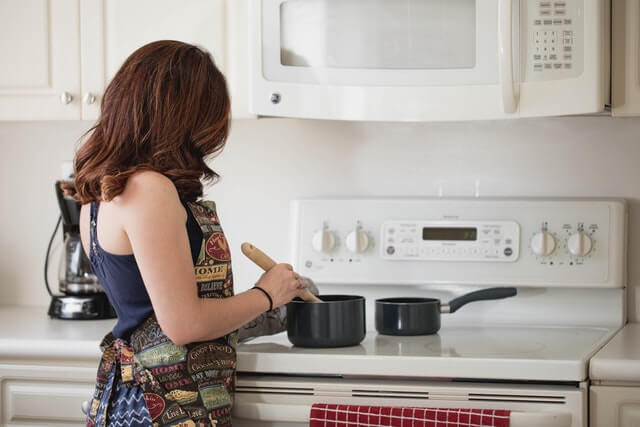
Electric stoves are a common appliance in many homes and apartments. They are simple to use and provide a constant heat source for cooking. However, leaving an electric stove on without proper supervision can be dangerous.
An electric stove generates heat by utilizing electricity. When power passes through the heating element in the stove, it gets red hot. If you leave an electric stove on, the heating element will stay red hot and can easily ignite any flammable materials nearby.
Leaving an electric stove on is also a waste of energy. The heating element will continue to consume electricity even when you’re not using it. This can lead to higher electric bills and strain the power grid during peak usage periods.
If you leave an electric stove on, be sure to keep a close eye on it. Never leave it unattended for long period of time. Electric stoves are a convenient and safe way to cook your food. However, if you are not cautious, they may be hazardous.
DO ELECTRIC BURNERS TURN OFF AUTOMATICALLY, AND HOW LONG CAN YOU LEAVE ELECTRIC STOVE ON?
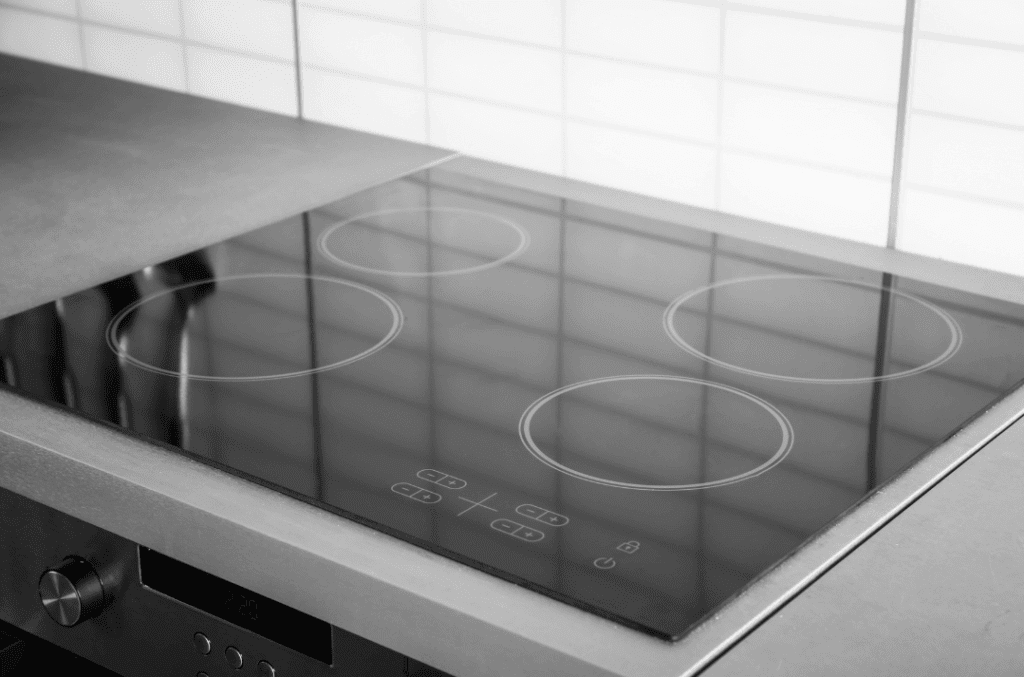
If you have an electric stove built after 1995, then your electric stove is likely to have an automatic shut-off feature. It works by shutting off the power to the stove when it detects that the stove top is left on for too long.
You can technically leave an electric stove on for up to 12 hours. However, it’s not the smartest idea. I did not recommend leaving your stove on for long periods, even if it will shut off automatically. If you have to leave the house for an extended time, it’s best to turn it off.
Can electric stoves cause fires?
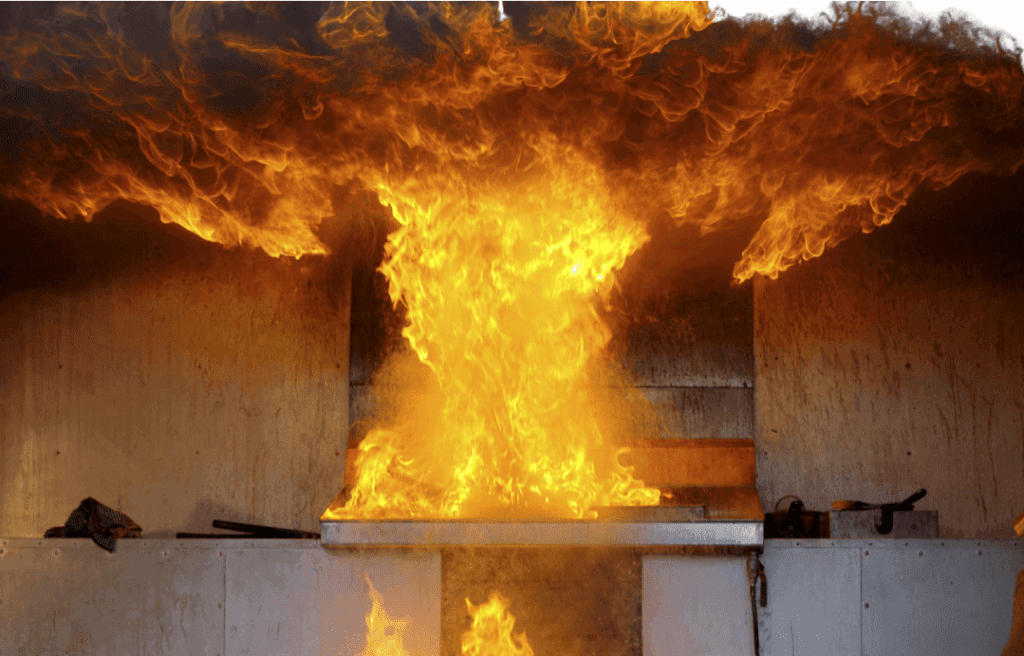
Fire Extinguisher
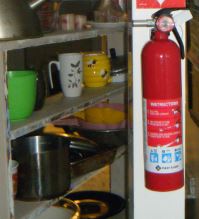
For Kitchen, Car, Shop, Garage
- Material – Steel
- Wall bracket included
- Dry in form
- Instant Protection From Any Fire Hazards
- 2900+ Amazon reviews
Yes, electric stoves can cause fires. If you’re planning to leave the house overnight, it’s best to play it safe and turn off your gas stove. Though most stoves have an automatic shut-off feature, leaving a gas stove unattended is risky. Here are a few reasons why an electric stove can become a fire hazard if left on:
If the stove is left on, it could overheat, and any flammable materials near the stove, such as curtains or towels, could catch fire. It is essential to be aware of these risks and take precautions to prevent them.
A short circuit or a significant burst of electricity are two more typical causes of an electrical product catching fire. Furthermore, if you’ve ever left a pot of stew boiling on the stove, you know it’s not a good idea to set it and forget it.
The same goes for any other type of cooking – If you’re cooking something on the stovetop, it’s vital to keep the pot or pan covered. Liquids can evaporate quickly without a lid, and the food inside the vessel will start burning, leading to a fire hazard.
To avoid this, keep an eye on your cooking and ensure that anything that could catch fire is turned off or removed from the burner area. Keep your stove clean and free of grease and other flammable materials to avoid fire hazards.
ELECTRIC STOVE POWER CONSUMPTION AND LEFT ELECTRIC STOVE ON ALL NIGHT COST?
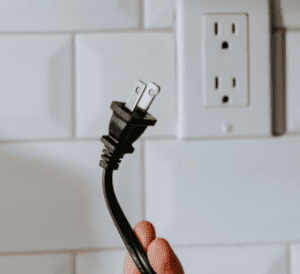
If you have ever left your electric stove on all night by accident, you may be wondering about the cost.
Electric stoves usually consume 1,000 to 3,000 watts of power. A 2500-watt stove will cost you roughly 25 cents per hour, assuming 10 cents per kilowatt-hour (kWh).
Of course, this is just an estimate, and your actual costs may vary depending on the type of electric stove you have and the electricity rate in your area.
If you are worried about the cost of leaving your electric stove on all night, it is best to unplug it when you are not using it. This will help prevent accidents and save you money on your electric bill.
CAN ELECTRIC STOVES EXPLODE?
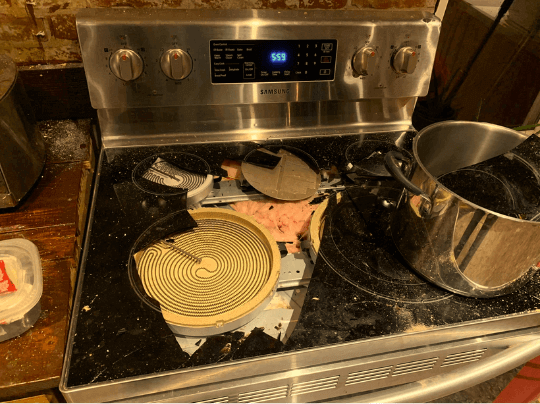
While electric stoves are generally safe, it is essential to know their potential to catch fire or even explode. This is most likely to happen if the coil range element becomes loose, cracked, or damaged. If you notice any damage, replace the part immediately to avoid sparking and electrical fires.
Another common reason for an electric stove explosion is faulty wiring. If the wiring inside your stove is damaged or not correctly installed, it can create a fire hazard. This fire hazard can eventually lead to an explosion if the wires are not fixed or replaced.
Keep your electric stove in good working order by regularly inspecting it for damage and replacing elements as needed. By doing so, you can help prevent a dangerous situation from occurring.
IS AN ELECTRIC STOVE SAFE?

As we all know, gas stoves have been around for many years and are the preferred choice for cooking by most people. However, with recent technological advances, electric stoves have become a viable option for those looking for a safer alternative. Here are some reasons why an electric stove may be the safer choice for you:
1. Electric stoves only heat the area that is necessary for cooking. This means a very low risk of accidentally setting your whole house on fire if you leave the stove on.
2. Again, electric stoves are safe because they don’t produce any open flames. This means there is no risk of a fire starting if you accidentally knock over a pot or pan.
3. Gas stoves give off carbon monoxide, a gas that can be very dangerous to your health. Electric stoves do not give off fumes, so you do not have to worry about this gas building up in your home.
3. There is no risk of a gas leak.
ELECTRIC STOVE SAFETY TIPS
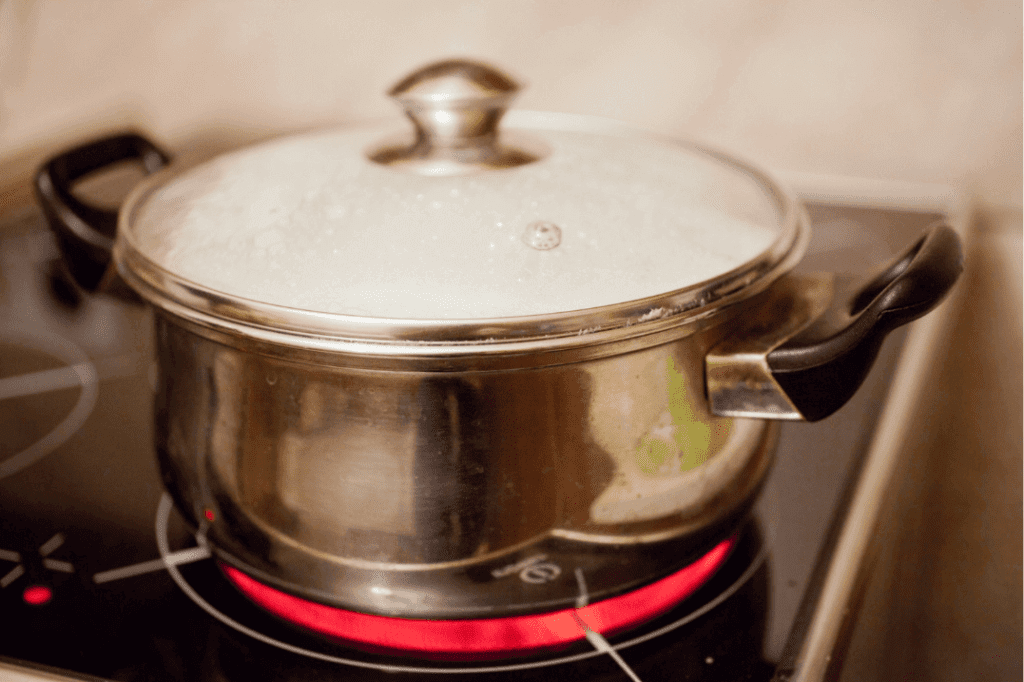
Electric stoves are a common household appliance, but they can be dangerous if not used properly. Here are some safety tips to keep in mind when using an electric stove:
1. Always use oven mitts or potholders when handling hot food or cookware on the stove.
2. Keep flammable items like towels and curtains away from the stove.
3. Never leave food unattended while it is cooking.
4. Turn off the stove once you finish cooking your food.
5. While cooking, avoid wearing long, loose-fitting sleeves that might catch fire or snag on a pot handle.
6. Set a timer to help remind you to check your meal in case you become distracted.
You must follow these simple safety tips to prevent accidents and injuries in your home.
If a fire starts in your kitchen, avoid the urge to extinguish it yourself. Several individuals are injured yearly while attempting to put out a kitchen fire. The correct action is to get everyone out of the house and call 911.
Protect Your Home From Fire

Metropolitan Insurance Co
- Loss due to accidental & lightening
- Loss due to earthquake following a shock or fire
- Loss due to a typhoon
- Loss or damage due to rise of water
Conclusion
It might be pricey to leave electric stoves on. It not only affects your electricity bill, but it also raises the chance of a fire. Electric stoves are not all the same. Some contain safety mechanisms that turn off the burner if left on for an extended period, while others do not. So It is crucial to understand your stove’s safety features and how it works.
You might also be interested in our other useful articles.
1. What happens If You leave an Electric Stove On?
2. How To Clean Gas Stove Top Grates?
3. What temperature is simmer on the stove?
4. KUCHT Vs ZLINE – Which is best for you?
5. What Should You Do If You Leave The Gas Burner On Without a Flame?
6. How Much Does A Gas Stove Weigh?
Thank You.






